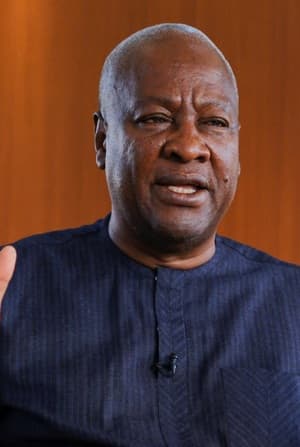
Is Free SHS Increasing Or Removing Financial Barriers To Secondary Education For The Poor?
On Tuesday, 12th September 2017, when His Excellency President Akufo-Addo launched the Free SHS at the premises of the West African SHS (WASS), he recited the free SHS Pledge ‘Because I know that Knowledge and talent are not for the rich and privileged alone, and that free education widens the gates of opportunities to every child, especially those whose talents are arrested because of poverty”.“ ..we lift the financial burden off our parents..and the heart-rending anxiety that accompanies the beginnings of every school term”, he concluded.
Obviously, this laudable policy was aimed at the poor and poorest.
Fast forward to 2018, after year one of implementation, when I led a team to conduct the first independent review of the free SHS. I made an equity and inclusion observation on the fSHS which has still not been accorded adequate attention, four years after. This observation largely accounts for why thousands who enroll do not complete, in addition to the 10% of all placed students fail to enroll at all. Averagely 40,000 placed students are unable to enroll each year.
This 20 Point write up ignites the argument that, the poor and poorest are not only the most excluded from the free SHS, but they are paying more for secondary education than the rich and privileged. It concludes that, poverty is still a major barrier to accessing and completing secondary education, in spite of four years of introducing a policy to address same; the reason being, the increasing cost of Day With Hostels (DWH) studentship phenomenon under the free SHS.
1. About 70% of rural students score above aggregate 30 at the BECE.
2. About 30% of students under fSHS are Day; the majority are placed through self-placement, where one is usually compelled to select from a tall list of available schools with many outside their district, and a high probability of being a Day Student. In this case, you either select one and find a private hostel around as a DWH student or you forget about free SHS. Don’t forget in 2019, 10% of students who were placed could not enroll.
3. This year, 72 hours after announcing the opening of manual placement, there were over 150 schools with vacancies, but all were Day Vacancies. I was assisting one of many who usually would come to our office for help; a 15-year-old son of a farm labourer who had been laid off due to COVID-19 impact on agric. The boy “Ben” had aggregate 38 from Gbawe Gonse Methodist D/A, a public basic school. He chose Building & Construction but could not secure placement in any of the five selected schools, including Wesley Grammar, his selected day school which is within 10 kilometres from his residence.
4. Enter the CSSPS: There was no Tech Institute. The only Sec-Tech’s available were outside Greater Accra. The closest was Moree SHTS in Moree, after Yamoransa on the Cape Coast highway.
5. During the free SHS study of 2018, I made two case studies of Moree and Adienmbra SHS where Day Students from rural Western and Central Region districts lived in rented hostels which were more expensive than the entire free SHS subsidy they enjoyed from government. Should ‘Ben’ have to honour his Self-Placement at Moree SHTS, we would spend GHC 1,300/ year on hostel and GHC 3,200 on food & water i.e., GHC 20 a day for at least 160 days an academic year. In total, he requires at least GHC 4,500 (excluding items on his school’s prospectus).
6. Meanwhile, all GoG spends under free SHS for a Day Student is GHC 1,300/year. Meaning, to benefit from GHc1,300/year free SHS subsidy, a poor Day Student in a Hostel spends three times more (GHC 4,500).
7. Again, this means other ‘privileged’ Boarding Students enjoy free accommodation and food with no transport cost, while some Poor students must pay an extra GHC 4,500 than their ‘privileged’ Boarding counterparts in order to access free SHS.
8. The outcome of this narrative is partly the reason why each year, 10% of those who are placed do not honour their admissions. Not all families can afford this, and even for those who manage to foot these bills, not all could sustain same.
9. So in the case of Ben, his father requires GHC 4,500 for his son’s accommodation plus extra funds for other items on the school’s prospectus. He has indicated he cannot raise the said amount, so his son, like many others in this situation, will remain at home. This is the story of many poor Ghanaians for whom the free SHS was primarily meant.
10. While I am by no means suggesting only ‘rich’ students are Boarders, I ask: If the free SHS Policy was introduced for the poor, why are SOME poor students rather paying GHC 4,500 to access what ought to be free, while some of their colleagues, including ‘richer’ students enjoy free accommodation and feeding as Boarding Students?
11. Yes, free SHS has increased enrolment by 30%. However, a cursory look at the Policy suggests that, the increase in enrolment is a function of removing Admission Cut Off’s and expanding infrastructure, rather than removal of financial access barriers as originally intended and announced by the President. Note that, prior to free SHS, candidates with Aggregate 36 and above did not qualify for placement. But the policy has permitted those with even aggregate 50 to access secondary education.
12. So can we say that, in accordance to the Presidents pledge at the launch of free SHS, all financial barriers to access have been removed for the poor? Can we say the poor now have unrestricted, equal access to Secondary Education opportunities under free SHS just like the ‘privileged’?
13. While some may argue that every social policy has deficits/gaps, which I concur, should the excesses be targeted at those originally intended as the prime beneficiaries, four years into implementation? No!
14. If the free SHS is not sufficiently inclusive, how can we improve the targeting of the policy towards needs of the poorest?
15. Should we provide stipends/ cash transfers for Day Students in Hostels to take care of transport, feeding and accommodation?
16. Should we begin to think about decentralizing the free SHS, so everyone attends SHS in their locality like South Africa, while reserving boarding schools for scholarship students, including students with promising academic prospects from public basic schools?
17. Should we accept boarding schooling as a norm, by providing boarding facilities in every school to ensure equity for all students, especially Day With Hostel ones? Are we aware of the cost consequences and are we ready to trade off same for equity considerations?
18. At present, one who lives in Madina Zongo, placed as a day student in Anlo Awomefia SHS would rather struggle to raise GHC 3,000 school fees for a ‘low cost’ private SHS in Madina than travel to rent, feed and live on their own in the Volta Region at the age of fifteen, while spending more.
19. Obviously, the removal of financial barriers to access, especially for the poor, which was pledged at the launch of the free SHS programme, is gradually becoming elusive. It is time to reposition the free SHS along the equity and inclusion angle, so that the poor would be given high preference/choice of boarding schools, in accessing ‘genuinely’ free secondary education.
20. If in doubt about who the poor really are, I define them to comprise: a) Students from Public Junior High Schools living anywhere in Ghana; b) Students attending low cost private schools in rural districts, and urban/peri-urban slums.
Kofi Asare
Africa Education Watch



















